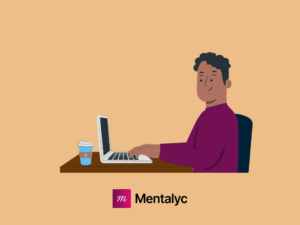As a psychotherapist, you understand that accurate and thorough notes are essential to provide great patient care. But did you know that there are specific requirements for how you must document your patients’ mental health information if you accept Medicare? To be compliant with Medicare regulations, your psychotherapy notes must include certain elements related to your patient’s diagnoses, observations, and treatment plans.
Here’s what you need to know about writing psychotherapy notes that will meet Medicare requirements.
First, it’s important to understand that psychotherapy notes are different from progress notes. Psychotherapy notes are private and meant only for your reference, while progress notes are meant to be shared with other healthcare providers who are involved in a patient’s care. Both types of notes are protected under the Health Insurance Portability and Accountability Act (HIPAA), but psychotherapy notes receive special protection because they can contain sensitive information.
To get reimbursement from Medicare for psychotherapy services, psychotherapists need to make sure their documentation is up to snuff. Here are some tips to help get you started:

New! Transfer your notes to EHR with a single click. No more copy-pasting.
Get your diagnosis right
Make sure you address each condition listed in the patient’s file. If you’ve identified more than one diagnosis or problem, you need to make sure you’re addressing them both in some way. This could mean collaborating with another provider (especially with things like substance use) or simply having two different treatment goals to cover each area.
Find accurate reasoning
Be able to justify your diagnosis. Every insurance plan requires a diagnosis for reimbursement. This is where many psychotherapists end up causing harm to their clients—by either over or under-diagnosing. If your client truly has an adjustment disorder, go ahead and list that. But if they have more significant symptoms that meet the criteria for a major depressive episode, it is fraud to give them a “lesser” diagnosis.
Plan your interventions
Have a plan for how you’re going to address the problem. It’s not enough to identify a need and then start therapy. A reviewer wants to know that you have a plan for how to treat this specific problem. You don’t need to write a huge treatment plan or outline every possible intervention you’ll provide, but you do need to outline how you see therapy progressing.
Look up covered interventions
Make sure your plan is something that the insurance company will pay for. Any time you have a third party paying for a service, they want to have a say in what that service entails. And specifically, insurance is looking to make sure that you are providing a needed, professional service that is appropriate for this client.
Monitor Progress
Check in with the client regularly to see how they’re progressing (or not progressing). Each week, you’ll want to evaluate the progress your client is making in their treatment plan. This doesn’t need to be time-consuming and doesn’t even mean you need to look at the treatment plan each week. However, it does mean you can’t abandon the treatment plan.
Maintain Progress
Have a specific maintenance plan for clients who are improving but still need some assistance. Insurance wants to see that you have a clear plan for maintaining the progress made and improving the situation for the client.
Reviewed by: Brittainy Lindsey
Disclaimer
All examples of mental health documentation are fictional and for informational purposes only.
Why other mental health professionals love Mentalyc

“A lot of my clients love the functionality where I can send them a summary of what we addressed during the session, and they find it very helpful and enlightening.”
Therapist

“It takes me less than 5 minutes to complete notes … it’s a huge time saver, a huge stress reliever.”
Licensed Marriage and Family Therapist

“By the end of the day, usually by the end of the session, I have my documentation done. I have a thorough, comprehensive note … It’s just saving me hours every week.”
CDCII

“Having Mentalyc take away some of the work from me has allowed me to be more present when I’m in session with clients … it took a lot of pressure off.”
LPC






